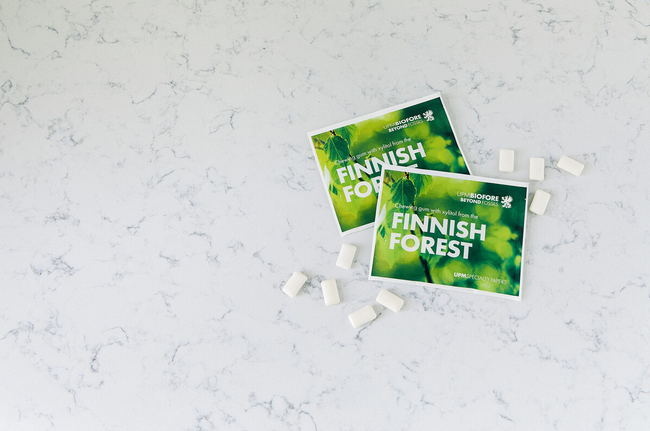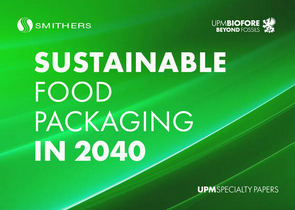A key trend that emerges from a study commissioned by UPM Specialty Papers is that while recycling, reuse and composting of packaging will all increase significantly, a fifth of all food packaging could still find its way to landfill and incineration even in two decades time.

Today, food packaging is predominantly plastic and recycling rates are relatively low. While, fibre-based packaging is widely recycled in non-food uses, the industry believes that by 2040 fibre-based packaging will approach circularity as technical development broadens its suitability for food packaging. Recycling rates for plastics are also projected to grow.
“The packaging industry will focus research and development efforts to meet increasing consumer and regulatory demand for more recyclable and compostable packaging”, believes Maria Saloranta, Vice President, Strategy for UPM Specialty Papers. “As a result, we expect the share of fibre-based food packaging to grow, accelerated by breakthroughs in barrier properties and use of smart technologies that help relay information to consumers quickly and easily”.
In the report, more than 200 global packaging professionals from across the value chain contributed to the first-ever collective assessment of key trends that are projected to drive sustainability in the food packaging industry by 2040. The industry anticipates the global share of polymer-based packaging will fall by half over the next two decades in sustainable food packaging applications, while fibre-based materials are projected to contribute to over 40% of all materials in use for food packaging.
 “The survey shows the industry is anticipating a USD 20 billion-dollar shift from polymer-based to fibre-based packaging by 2040,” notes Ciaran Little, Global VP of Business Development, Smithers. “The use of polymer packaging will not be eliminated but will focus on robust applications in which high strength barrier requirements and reusability are critical.”
“The survey shows the industry is anticipating a USD 20 billion-dollar shift from polymer-based to fibre-based packaging by 2040,” notes Ciaran Little, Global VP of Business Development, Smithers. “The use of polymer packaging will not be eliminated but will focus on robust applications in which high strength barrier requirements and reusability are critical.”
Download the report to learn what trends will dominate sustainable food packaging in 2040.
UPM Specialty Papers
UPM Specialty Papers answers the world’s need for sustainable products with high-performance, fossil-free materials for packaging and labelling, and in APAC the most sustainable office and graphic papers available. Our approximately 1,900 dedicated experts help customers co-create solutions to their business challenges. UPM Specialty Papers’ global team and mills in China, Finland and Germany serve customers consistently and reliably around the world.
Find out how our products are special by nature at upmspecialtypapers.com | #beyondfossils #specialbynature
UPM
We deliver renewable and responsible solutions and innovate for a future beyond fossils across six business areas: UPM Fibres, UPM Energy, UPM Raflatac, UPM Specialty Papers, UPM Communication Papers and UPM Plywood. As the industry leader in responsibility, we are committed to the UN Business Ambition for 1.5°C and the science-based targets to mitigate climate change. We employ 17,000 people worldwide and our annual sales are approximately EUR 9.8 billion. Our shares are listed on Nasdaq Helsinki Ltd. UPM Biofore – Beyond fossils. www.upm.com
Smithers
Founded in 1925 and headquartered in Akron, Ohio, Smithers is a multinational provider of testing, consulting, information, and compliance services. With operations and laboratories in North America, Europe, and Asia, Smithers supports customers in the packaging, transportation, life science, materials, components, consumer, and energy industries. Smithers delivers accurate data, on time, with high touch, by integrating science, technology, and business expertise, so customers can innovate with confidence. www.smithers.com
